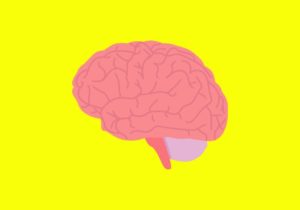 Chronic Fatigue Syndrome (CFS) is a debilitating condition that affects millions of people worldwide. It’s characterized by severe, disabling exhaustion, as well as a number of other physical and mental symptoms. Despite its prevalence, CFS remains largely misunderstood and misdiagnosed by medical professionals. This article will provide an overview of the condition, including its causes, diagnosis and treatment options.
Chronic Fatigue Syndrome (CFS) is a debilitating condition that affects millions of people worldwide. It’s characterized by severe, disabling exhaustion, as well as a number of other physical and mental symptoms. Despite its prevalence, CFS remains largely misunderstood and misdiagnosed by medical professionals. This article will provide an overview of the condition, including its causes, diagnosis and treatment options.
Despite being relatively common, CFS still lacks recognition from healthcare providers in many areas around the world. Too often patients are met with disbelief when they seek help for their symptoms – leaving them feeling frustrated and alone on their journey to manage this complex disorder. The next section of this article will look at how CFS is diagnosed and treated in more detail.
What Is Chronic Fatigue Syndrome
Chronic fatigue syndrome (CFS) is a debilitating medical condition characterized by systemic exertion intolerance disease, post-exertional malaise and severe fatigue.
Chronic Fatigue Syndrome is also called Chronic Fatigue immune dysfunction syndrome and also myalgic encephalomyelitis. Some people feel these names better describe the seriousness of the disease.
Florence Nightingale was one of the first on record to be diagnosed with chronic fatigue. Other slang terminologies used for the disease are “neurasthenia” and “yuppie flu”.
 CFS can cause extreme exhaustion that lasts for more than 24 hours after physical or mental activity. Other severe symptoms of the disorder include joint pain, cognitive impairment, headaches, sore throat, and tender lymph nodes. People suffering from CFS experience an overwhelming feeling of being ‘unwell’ or have difficulty performing everyday tasks due to their symptoms. Treatment usually involves lifestyle changes such as getting enough sleep, eating healthy foods, and exercising regularly; however, medications may be prescribed depending on the severity of the illness. In some cases, psychological therapies are beneficial in managing chronic fatigue syndrome.
CFS can cause extreme exhaustion that lasts for more than 24 hours after physical or mental activity. Other severe symptoms of the disorder include joint pain, cognitive impairment, headaches, sore throat, and tender lymph nodes. People suffering from CFS experience an overwhelming feeling of being ‘unwell’ or have difficulty performing everyday tasks due to their symptoms. Treatment usually involves lifestyle changes such as getting enough sleep, eating healthy foods, and exercising regularly; however, medications may be prescribed depending on the severity of the illness. In some cases, psychological therapies are beneficial in managing chronic fatigue syndrome.
Who Gets Chronic Fatigue Syndrome
CFS affects an estimated one million people in the US. Although it is thought that only 20% of cases are diagnosed. Anyone can get CFS, but it’s most commonly seen in women between the ages of 40 and 60 years old. However, that may just be a reflection of those who seek help.
Many people with CFS have had prior physical activity or exercise-related illnesses such as postural orthostatic tachycardia syndrome (POTS). It’s also common for those with autoimmune diseases, such as encephalomyelitis chronic fatigue syndrome (ME/CFS), to develop symptoms of CFS.
What Causes It
Moving on from who gets CFS, the next question is what causes it? The cause of chronic fatigue syndrome (CFS) remains largely unknown. Scientists have proposed several possible explanations including physical activity and lifestyle factors, infectious disease agents, as well as genetic predisposition.
The Centers for Disease Control and Prevention (CDC) states that “the cause or causes of CFS are not yet known” but adds that a number of research studies suggest some potential underlying mechanisms. These include disturbances in the regulation of physical activity; changes in metabolic function; virus infections like covid-19; immune system abnormalities; sleep problems; hormonal imbalances, and other forms of chronic illness such as fibromyalgia and multiple sclerosis that present with similar symptoms.
Frequently, three portions of the central nervous system appear to be the root cause of issues for most Chronic Fatigue Syndrome sufferers:
- Hypothalamus-pituitary- adrenal (HPA) axis dysfunction- This can cause a gradual but enduring stress
 response and eventually lead to adrenal exhaustion. Interestingly, the HPA axis appears to be an integral part of depression as well, and research has shown that CFS leads to a high chance of developing depression. The distinction lies in the release of cortisol. Imbalances in the Hypothalamic-Pituitary-Adrenal (HPA) axis can result in an overproduction of cortisol, which is often a signifier of depression. Although people with CFS usually have lower cortisol levels than normal, it remains unknown whether this is due to adrenal exhaustion or simply inadequate control of the hormone.
response and eventually lead to adrenal exhaustion. Interestingly, the HPA axis appears to be an integral part of depression as well, and research has shown that CFS leads to a high chance of developing depression. The distinction lies in the release of cortisol. Imbalances in the Hypothalamic-Pituitary-Adrenal (HPA) axis can result in an overproduction of cortisol, which is often a signifier of depression. Although people with CFS usually have lower cortisol levels than normal, it remains unknown whether this is due to adrenal exhaustion or simply inadequate control of the hormone. - Neurally mediated hypotension- The brain’s nerve signals are not strong enough to maintain the blood vessels in a state of constriction and regulate an appropriate level of blood pressure. This problem is associated with an improper reaction to adrenaline.
- Neurotransmitter imbalance- Recent studies have uncovered that the cerebrospinal fluid of people displaying indications of CFS contains several proteins distinct to the condition. A groundbreaking discovery has been made – this is the first reliable biological marker of the disease found thus far.
Signs And Symptoms
Chronic fatigue syndrome is a complex disorder with various signs and symptoms. People who have it can experience profound, disabling fatigue for a minimum of 6 months that doesn’t improve with rest. Common symptoms of chronic fatigue include:
* Loss of stamina during physical activities or exercise
* Weakness, dizziness, or lightheadedness upon standing up
* Muscle pain and joint pain without swelling or redness
*Irregular heartbeat
*Nausea
*Jaw Pain
*Dry eyes and mouth
*Coughing
* A medical history of persistent or recurrent exhaustion for at least 6 months not due to ongoing exertion
* An inability to perform normal daily tasks similar in level to before the onset of illness
* Symptoms worsen after mental or physical activity but don’t improve after resting
* Headaches of a new type, pattern, or severity
* Unrefreshing sleep (feeling exhausted despite sleeping enough hours)
* Cognitive difficulties such as impaired concentration and memory problems
 These symptoms can mimic those of other conditions like fibromyalgia and irritable bowel syndrome. It’s important for people experiencing these issues to seek professional help so they can be accurately diagnosed and receive appropriate treatment.
These symptoms can mimic those of other conditions like fibromyalgia and irritable bowel syndrome. It’s important for people experiencing these issues to seek professional help so they can be accurately diagnosed and receive appropriate treatment.
The fatigue associated with CFS can be so intense that it interferes with daily activities. People affected may find themselves unable to concentrate or complete simple tasks without feeling overwhelmingly exhausted afterward. Other common physical symptoms include muscle pain, headaches, sleep disturbances, joint pain and cognitive impairment among other symptoms. In addition to the physical effects, many sufferers also experience depression and anxiety due to their inability to live life normally.
How Is It Diagnosed
Having identified the signs and symptoms of chronic fatigue syndrome, healthcare providers must now diagnose it. To do so, they will look for physical and psychological symptoms that are persistent or reoccurring over time. This can include muscle aches and pains, difficulty sleeping, problems with memory or concentration, joint pain and enlarged lymph nodes. Additionally, a person may experience exhaustion even after engaging in light activity for long periods of time.
In some cases, conditions such as viral infections or myalgic encephalomyelitis/chronic fatigue (ME/CFS) may be ruled out through medical tests. These tests can involve blood work to check for any abnormalities; imaging scans like X-rays or MRI’s to rule out other underlying causes; an electrocardiogram to assess the heart health; and thyroid function testing to measure hormone levels. In addition to these diagnostic procedures, mental health assessments may also be conducted by psychiatrists or psychologists who specialize in this disorder.
In order to be diagnosed with CFS, someone must experience severe, disabling fatigue along with four out of eight other criteria defined by the Centers for Disease Control and Prevention (CDC). Those criteria include impaired memory or concentration; sore throat; tender lymph nodes; muscle pain; joint pain without swelling or redness; headaches of a new type, pattern, or severity; unrefreshing sleep; and extreme exhaustion lasting more than 24 hours after exertion.
The diagnosis process usually involves ruling out any underlying conditions that could explain their symptoms before arriving at a possible conclusion of CFS. A medical doctor should always be consulted when considering a CFS diagnosis so they can review medical history and conduct tests if necessary.
If all else fails, a comprehensive diagnosis can often be made through patient observation and history taking from a trained professional who is familiar with CFS. They will take into account a person’s lifestyle habits – such as diet, exercise patterns and stress management techniques – along with their current emotional state when diagnosing them with this condition.
What Is The Treatment
The primary goal of treatment for chronic fatigue syndrome is to help the individual manage their symptoms. Treatment usually consists of physical activity, such as exercise and stretching; reducing stress; and taking medications that can benefit specific symptoms, like sore throat or orthostatic intolerance. Bed rest is not recommended due to its potential to weaken muscles. Instead, an approach called ‘activity management’ is often used by those with CFS. This method involves pacing activities throughout the day so that energy levels remain consistent from one task to another. People with CFS should also avoid overexertion and try to maintain a healthy diet. Juicing is an excellent treatment for chronic fatigue syndrome.
It’s important for individuals with CFS to seek out emotional support in order to cope more effectively with their condition. Support groups can provide valuable insight into managing daily life while dealing with chronic fatigue syndrome. Therapy may be beneficial if needed, allowing people to work through any mental health issues they might have associated with it. Additionally, recent evidence suggests that tai chi may be beneficial in alleviating symptoms associated with CFS.
Is Massage Good For For Chronic Fatigue
Massage therapy has been increasingly recommended as part of a treatment plan for those with chronic fatigue syndrome (CFS). It is thought to help ease pain and other symptoms associated with CFS. In addition to physical benefits such as easing body stiffness or concentration on certain areas of the body that may cause discomfort, massage can also bring psychological benefits. Massage can provide an opportunity for relaxation and mental activity which could be beneficial in relieving some of the common CFS symptoms mentioned above. [Schedule your massage here.]
syndrome (CFS). It is thought to help ease pain and other symptoms associated with CFS. In addition to physical benefits such as easing body stiffness or concentration on certain areas of the body that may cause discomfort, massage can also bring psychological benefits. Massage can provide an opportunity for relaxation and mental activity which could be beneficial in relieving some of the common CFS symptoms mentioned above. [Schedule your massage here.]
The practice called ‘pacing’ is used by many people suffering from CFS. This refers to setting realistic goals when it comes to activity levels throughout the day so that they balance rest with exertion to not lead to relapses in their condition. Incorporating massage into your daily activities can become part of this pacing technique; this way you can slowly increase your comfort level without pushing yourself too hard too soon. A professional therapist should always be consulted before starting any kind of massage therapy routine to ensure safety and efficacy of the treatment plan. All in all, massage may prove to be a helpful tool for managing chronic fatigue syndrome while helping improve overall well-being through its various physical and psychological benefits.
Conclusion
In conclusion, CFS is a condition that affects many people. It can be difficult to diagnose, but massage may help reduce the symptoms associated with it. As we have seen, there are several potential causes of the syndrome and its signs and symptoms vary from person to person. Although there is no known cure for chronic fatigue syndrome, managing lifestyle habits such as restful sleep and healthy eating may help lessen its effects. Additionally, treatments like massage therapy may also provide relief. With continued research into this condition, hopefully, more effective treatment options will become available in the future.


 response and eventually lead to adrenal exhaustion. Interestingly, the HPA axis appears to be an integral part of depression as well, and research has shown that CFS leads to a high chance of developing depression. The distinction lies in the release of cortisol. Imbalances in the Hypothalamic-Pituitary-Adrenal (HPA) axis can result in an overproduction of cortisol, which is often a signifier of depression. Although people with CFS usually have lower cortisol levels than normal, it remains unknown whether this is due to adrenal exhaustion or simply inadequate control of the hormone.
response and eventually lead to adrenal exhaustion. Interestingly, the HPA axis appears to be an integral part of depression as well, and research has shown that CFS leads to a high chance of developing depression. The distinction lies in the release of cortisol. Imbalances in the Hypothalamic-Pituitary-Adrenal (HPA) axis can result in an overproduction of cortisol, which is often a signifier of depression. Although people with CFS usually have lower cortisol levels than normal, it remains unknown whether this is due to adrenal exhaustion or simply inadequate control of the hormone.



